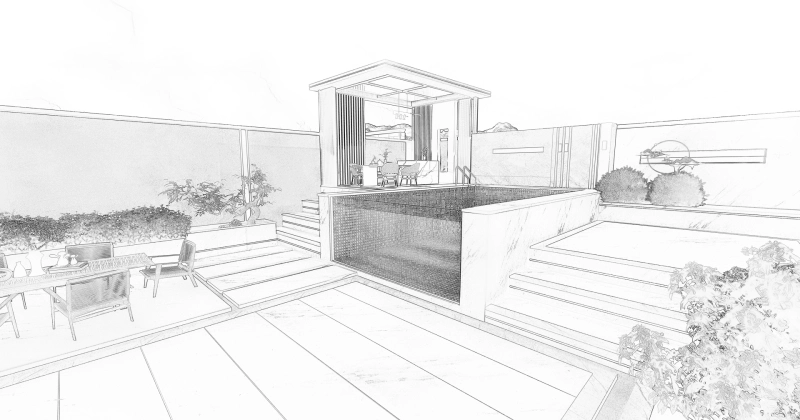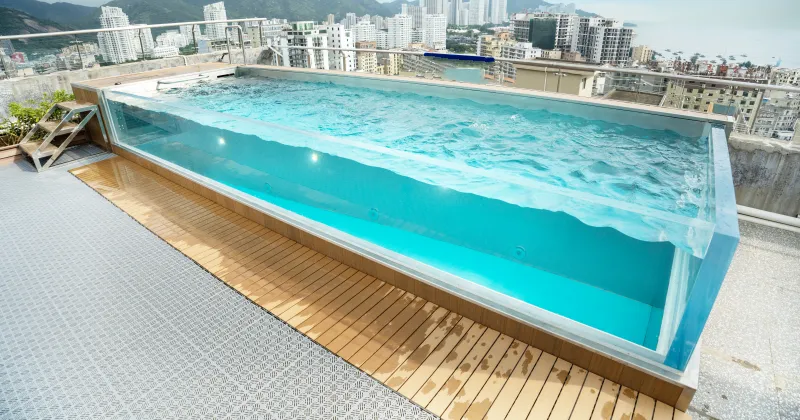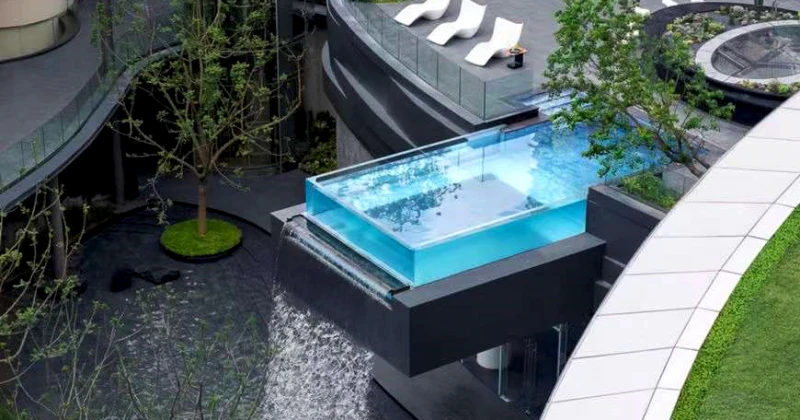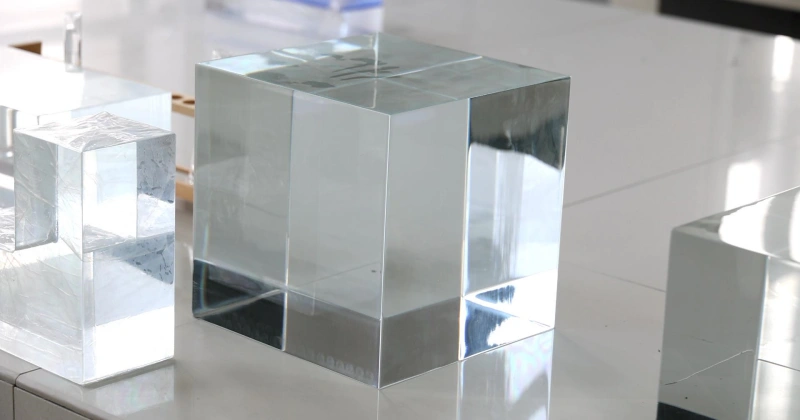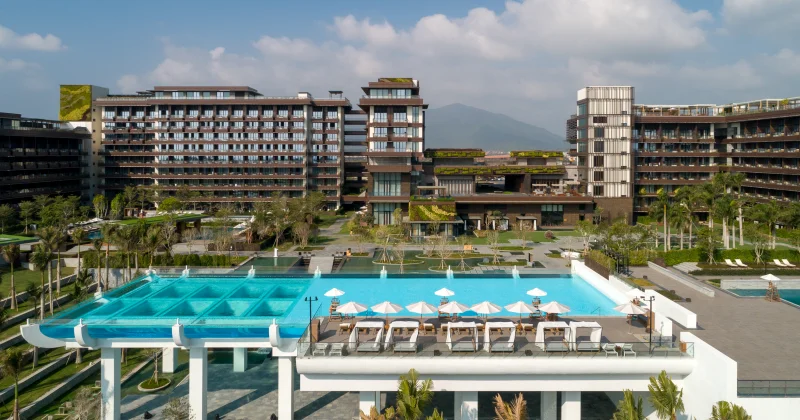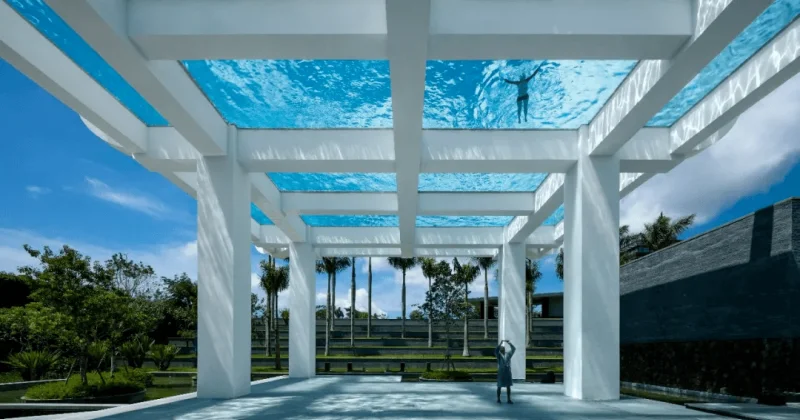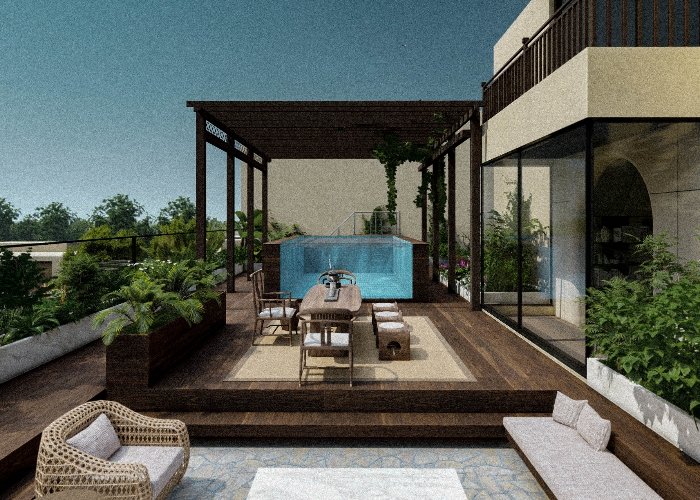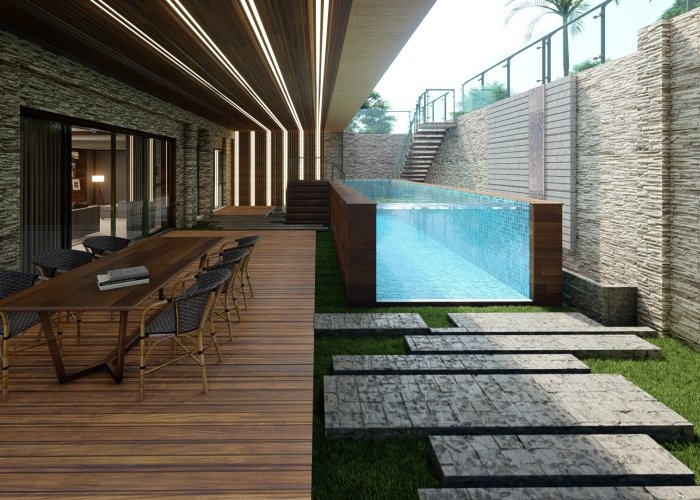
What's the best glass type for swimming pool?
In everyday life or on social media, we often see swimming pools with transparent windows that create a stunning visual effect. These pools are frequently featured in luxury resorts or private villas. You might wonder what materials are used to make these glass-like walls. In this article, we will explore several common materials used for swimming pool glass walls.
With advancements in technology and diverse design demands, the market now offers a variety of glass wall materials for pool owners to choose from. Selecting the right type of glass is crucial for the swimming pool's safety, aesthetics, and durability. From the cost-effective laminated glass to the highly durable and safe acrylic glass, each type of glass has its unique advantages and suitable applications. So, which type of glass is best for your swimming pool? By analyzing their pros and cons, we can help you make an informed decision, ensuring that your pool is not only safe and durable but also a beautiful focal point.

Considerations for Choosing the Type of Pool Glass
When planning to build a glass-walled pool, there are numerous factors to consider based on your specific needs. There's no one-size-fits-all material, so it's essential to choose the right type of pool glass by weighing several key considerations:
Safety
Safety is always the top priority. Pool glass must ensure the users' safety, even if it breaks. It should prevent injuries like cuts from shattered pieces.

Visual Appeal
The most striking difference between a traditional pool and a glass pool is the stunning visual effect. This is a crucial factor for many people. Good light transmission and clarity can create an open, transparent view, enhancing the aesthetic experience of the pool.
Weather Resistance
Pool glass needs to withstand harsh environmental conditions such as sunlight, temperature variations, humidity, and chemicals. Choosing the right material ensures that your pool remains safe and durable over time.
Thermal Insulation
The thermal performance of the glass directly impacts the energy consumption of an indoor pool, especially during frequent use or winter heating. Efficient insulation can save you a lot of money and is in line with current trends towards energy conservation and environmental protection.
cost
Different types of glass materials come with varying characteristics, and the costs for production, installation, and maintenance differ as well. It's crucial to consider your budget and make a reasonable choice accordingly.

Glass walls significantly influence the aesthetics, safety, and functionality of the entire pool area. Whether for indoor or outdoor pools, glass is an indispensable element used for enclosures, skylights, or lighting.
Choosing the right glass walls can greatly enhance the swimming experience, creating a comfortable and open environment. Conversely, a poor choice can lead to safety hazards, energy wastage, and visual obstructions. Therefore, the importance of glass walls in pool construction should not be underestimated.

Types of Pool Glass
The common materials for pool glass walls mainly include three types: laminated glass, tempered glass, and acrylic glass. These materials offer nearly identical visual effects, all achieving the desired stunning transparency. Therefore, we'll discuss these three materials based on factors other than appearance.

Laminated Glass
Laminated glass is made by sandwiching one or more tough, adhesive polyvinyl butyral (PVB) interlayers between two or more layers of glass, and then processing it under high temperature and pressure. Laminated glass made with transparent PVB film looks and installs just like regular glass and is highly durable.

Safety
The toughness of the PVB film is excellent. When laminated glass is struck and breaks, the PVB layer absorbs a large amount of the impact energy and weakens it quickly, making it very difficult to penetrate. Even if the glass shatters, it remains intact within the frame.
Durability
UV Protection: The PVB interlayer has UV-blocking properties, preventing the most harmful UV rays from entering the pool water and indoor space, thereby protecting the pool equipment and furniture from UV damage.
Weather Resistance: The multi-layer structure of laminated glass gives it better weather resistance, allowing it to maintain stable performance in various climate conditions.
Cost
Similar to tempered glass, the cost of laminated glass is not as high compared to acrylic glass. However, acrylic glass is about half the weight of laminated glass, which means larger equipment and higher expenses are needed for transportation and installation. Due to the fragile nature of glass, it requires careful handling at every stage, necessitating more investment in protective measures.
Professional Requirements
Installing laminated glass requires precise handling by professionals to ensure the integrity and safety of both the glass and the interlayer. Improper installation can lead to reduced performance or safety hazards.

Tempered Glass
Tempered glass is produced through a heat treatment process that heats ordinary glass to near its softening point and then rapidly cools it, creating compressive stress on the surface and tensile stress within. This process makes tempered glass 4-5 times stronger than regular glass.

Safety
Due to its increased strength, tempered glass performs excellently against mechanical impacts and wind pressure, making it ideal for situations requiring resistance to external forces. When tempered glass breaks, it shatters into small, blunt particles instead of sharp shards, reducing the risk of injury. This characteristic makes it widely used in high-safety applications.
Shattering: When tempered glass breaks, it shatters completely, preventing the danger and damage associated with partial breakage.
Irreparability Despite its high strength, tempered glass can, in rare cases, break unexpectedly due to internal stress or minor external damage. Once it breaks, it cannot be repaired and must be entirely replaced.
Cost
Once tempered glass breaks, it cannot be repaired and requires the entire glass panel to be replaced, increasing maintenance costs. Since tempered and laminated glass are made from the same base material but differ in processing, their transportation and installation costs are similar. This aspect has no distinction.

Acrylic Glass
Acrylic, or plexiglass, is a versatile plastic material with numerous benefits. It's commonly available in various thicknesses and can be used to create a wide range of products, including aquariums, retail displays, window glass, and even bulletproof glass!

Safety
Acrylic glass has 17 times the impact resistance of regular glass, making it highly shatter-resistant even under strong impact. This makes acrylic glass an excellent choice for applications requiring high-strength materials.
Versatility
Customizability: Acrylic glass can be molded into various shapes and sizes through thermoforming processes, catering to different design needs. This versatility makes it ideal for swimming pool projects with complex shapes or unique designs.
Workability: It can be cut, drilled, engraved, and polished, accommodating various detailed processing requirements.
Weather and Chemical Resistance
UV Protection: Acrylic glass has excellent UV resistance and won’t yellow or degrade with prolonged sun exposure.
Chemical Resistance: It resists most chemicals, maintaining stability in chlorinated pool environments.
Acrylic glass is softer and more prone to scratches from hard objects. While minor scratches can be polished out, regular maintenance and protection are necessary.
Cost
Generally, the material cost of acrylic glass is higher than that of laminated or tempered glass of the same thickness and size. However, this can be offset by lower manufacturing and installation costs. Acrylic is lighter than glass, making it easier to handle and install, reducing costs. Its lighter weight lowers transportation expenses and labor costs during installation. Acrylic can be easily cut and shaped on-site with standard tools, potentially reducing installation time and costs. Additionally, acrylic's superior insulation can provide long-term energy savings, especially in temperature-controlled environments like pool windows or greenhouses, offsetting the higher initial cost.
Acrylic panels typically have a longer lifespan than glass and require less maintenance, reducing long-term costs. While acrylic is more easily scratched, it can be restored to like-new condition by professional polishing. Glass, though more scratch-resistant, is difficult to repair when scratched and often more costly to replace.

Applications
Large Viewing Windows:
Its high impact resistance provides safety for large-scale applications. Acrylic glass's high transparency and moldability make it perfect for large viewing windows in pools, offering unobstructed visual experiences.
Specially Shaped Panels:
Design Flexibility: Acrylic glass can be shaped into curved or complex forms, meeting specific design needs like curved pool walls or transparent lane dividers.
Unlimited Creativity:
Designers can exploit the moldability of acrylic glass to create unique pool designs.

Indoor Pools:
Aesthetic and Functional: Acrylic glass provides both aesthetic appeal and functionality in indoor pools, offering durability and safety, making it an ideal choice.
Acrylic glass excels in pool applications due to its lightweight, high transparency, strong impact resistance, and excellent moldability. Though it is prone to scratching and has lower heat resistance, with proper protection and maintenance, its advantages can be maximized. Acrylic glass is especially suitable for pools needing large viewing windows and uniquely shaped panels, making it the ideal material for creative designs and safety assurance.
Summary of Pool Wall Applications:
Safety: Acrylic Glass > Tempered Glass > Laminated Glass
Transparency: Acrylic Glass > Laminated Glass ≈ Tempered Glass
Impact Resistance: Acrylic Glass > Tempered Glass > Laminated Glass
Durability: Laminated Glass > Tempered Glass > Acrylic Glass
Cost: Acrylic Glass > Laminated Glass ≈ Tempered Glass
Although acrylic glass is significantly more expensive than the other two types of glass, which is its main drawback, its combination of safety, clarity, insulation performance, and durability makes it an excellent choice for pool windows. Compared to traditional glass, acrylic offers both functional and aesthetic advantages. Its safety, shatter resistance, and impact strength reduce the risk of injury. Its optical clarity can match or even surpass glass, providing an undistorted view. Acrylic’s superior insulation helps maintain the desired water temperature more efficiently. Additionally, its durability and long lifespan mean less frequent replacements compared to glass. All these factors make acrylic glass the preferred choice for pool window applications, both in terms of practicality and aesthetics.






